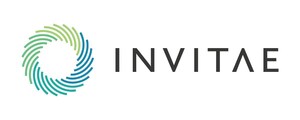SAN ANTONIO, Dec. 5, 2017 /PRNewswire/ -- Research presented today by Invitae Corporation (NYSE: NVTA), one of the fastest growing genetic information companies, shows how clinicians are using genetic testing beyond BRCA1 and BRCA2 to guide treatment and screening decisions for hereditary breast and ovarian cancer (HBOC) patients and their families. The data are being presented at the 2017 San Antonio Breast Cancer Symposium.
Earlier research from Invitae published in the October issue of Annals of Surgical Oncology shows that when multigene panels are used with breast cancer patients, most non-BRCA variants identified are in clinically actionable genes with defined management guidelines. Two studies presented in San Antonio looked at the prevalence of non-BRCA findings and their utility for patient care.
First, an analysis of patients who received germline testing following somatic testing of breast tumor samples found that germline BRCA1/2 findings were identified in nearly half of patients and a substantial portion also had at least one germline variant outside BRCA1/2. An additional study evaluated how patients with non-BRCA findings are managed by clinicians and found that their test results altered clinical management, including implementing increased surveillance, additional family testing, and other treatment modifications.
"Our understanding of the genes associated with HBOC risk has continued to grow and a number of genes outside BRCA1 and 2 are known to confer added risk of disease. This research shows that for both germline and somatic testing, important information about hereditary cancer syndrome genes besides BRCA1/2 may be identified in HBOC patients," said Robert Nussbaum, MD, chief medical officer of Invitae. "These studies confirm that those findings are most often clinically actionable. Together, the results suggest that expanding guidelines to also address the identification and management of non-BRCA variants could improve care for HBOC patients and their families."
Full research presentation schedule
The full schedule of the Invitae presentations at the meeting is as follows:
Wednesday, December 6:
- PD1-03: Clinically actionable pathogenic mutation that may be missed by conventional NGS-based testing: An analysis of 80,000 patients | Presented by Steve Lincoln, Invitae | 5:00 pm CT
Thursday, December 7:
- P3-03-01: Clinical utility of finding pathogenic mutations beyond BRCA1/2 in breast cancer patients | Presented by Ed Esplin, MD, PhD, FACMG, Invitae | 5:00 pm CT
Friday, December 8:
- P4-06-02: Germline analysis of breast cancer patients with abnormal somatic results: Ancillary assessment or critical co-diagnostic? | Presented by Ed Esplin, MD, PhD, FACMG, Invitae | 7:00 am CT
- P4-06-08: An interlaboratory study of complex mutation detection in genes associated with hereditary breast and ovarian cancer highlights both successes and current challenges | Presented by Steve Lincoln, Invitae | 7:00 am CT
- P4-06-09: Addition of a remote genetic counselor to the breast specialist's team improves clinical decision-making | Presented by Barry Rosen, MD, Advocate Health | 7:00 am CT
About Invitae
Invitae Corporation's (NYSE: NVTA) mission is to bring comprehensive genetic information into mainstream medical practice to improve the quality of healthcare for billions of people. Specializing in genetic diagnostics in clinical areas across all stages of life, Invitae is aggregating the world's genetic tests into a single service with better quality, faster turnaround time, and lower prices. The company provides a variety of diagnostic tests with clinical utility in preimplantation and carrier screening for inherited disorders, miscarriage analysis, pediatric and developmental disorders, neurological disorders, cardiovascular disorders, metabolic disorders, and hereditary cancers. For more information, visit our website at invitae.com.
Safe Harbor Statements
This press release contains forward-looking statements within the meaning of the Private Securities Litigation Reform Act of 1995, including statements that multi-gene genetic testing could improve identification and management of hereditary cancer risk for breast cancer patients and their families; that important information about hereditary cancer syndrome genes besides BRCA may be identified in hereditary breast and ovarian cancer (HBOC) patients; and that expanding the guidelines to address identification and management of non-BRCA genetic variants could improve care for HBOC patients and their families. Forward-looking statements are subject to risks and uncertainties that could cause actual results to differ materially, and reported results should not be considered as an indication of future performance. These risks and uncertainties include, but are not limited to: risks associated with the company's ability to use rapidly changing genetic data to interpret test results accurately, consistently, and quickly; the company's history of losses; the company's need to scale its infrastructure in advance of demand for its tests and to increase demand for its tests; the company's ability to develop and commercialize new tests and expand into new markets; the risk that the company may not obtain or maintain sufficient levels of reimbursement for its tests; laws and regulations applicable to the company's business; and the other risks set forth in the company's filings with the Securities and Exchange Commission, including the risks set forth in the company's Quarterly Report on Form 10-Q for the quarter ended September 30, 2017. These forward-looking statements speak only as of the date hereof, and Invitae Corporation disclaims any obligation to update these forward-looking statements.
Contact:
Laura D'Angelo
[email protected]
314-920-0617
SOURCE Invitae Corporation
Related Links
WANT YOUR COMPANY'S NEWS FEATURED ON PRNEWSWIRE.COM?
Newsrooms &
Influencers
Digital Media
Outlets
Journalists
Opted In





Share this article